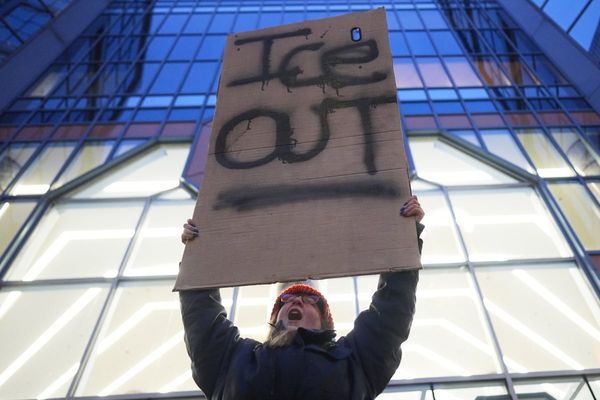
A temporary injunction that would have blocked asylum seekers from being housed at the Bell hotel in Epping, Essex, has been overturned by the court of appeal. Here we explain what the court decided, and its significance.
What was the appeal about?
Last week, after an application by Epping Forest district council (EFDC), a high court judge ruled that asylum seekers could no longer be placed at the protest-hit Bell hotel and gave its owner, Somani Hotels, until 12 September to rehouse the 138 remaining there. Mr Justice Eyre granted the injunction, to remain in force until the case could be heard in full in October, after hearing EFDC’s complaints that planning law had been breached in changing the site’s use.
Somani Hotels challenged the decision at the court of appeal, as did the Home Office, which had been refused permission by Eyre to intervene in the high court case.
What did the court of appeal decide and why?
The three justices said both Somani Hotels and the Home Office, which it permitted to intervene in the case, could appeal against Eyre’s decision and quashed the temporary injunction in the meantime.
Lord Justice Bean, sitting with Lady Justice Nicola Davies and Lord Justice Cobb, said Eyre had made a number of errors in principle. He said: “The judge’s approach ignores the obvious consequence that the closure of one site means capacity needs to be identified elsewhere in the system.”
Other reasons given for overturning the interim relief were that Eyre should not have given weight in his judgment to protests, including unlawful protests, taking place outside the hotel, as that could incentivise further protests and “further lawlessness”. The judges said this risk outweighed Epping residents’ fear of crime. They also cited the fact that the Bell hotel had been used to house asylum seekers since 2020 without EFDC taking any enforcement action.
What is the significance of the decision?
If the court of appeal had upheld the temporary injunction, it would not only have affected the situation in Epping but other councils had indicated they would consider their own legal challenges to prevent hotels in their area being used to house asylum seekers.
Eyre had made plain that his decision was specific to the “narrow dispute” being discussed. But the court of appeal judgment said the interim relief “may incentivise local planning authorities who wish to remove asylum accommodation from their area to apply to the court urgently before capacity elsewhere in the system becomes exhausted. The potential cumulative impact of such ad hoc applications was a material consideration … that was not considered by the judge.”
What does it mean for the policy of housing asylum seekers in hotels?
Although the temporary injunction was set aside, EFDC’s challenge to the Bell hotel being used to house asylum seekers will still proceed to a trial, scheduled for October. Should EFDC be successful, the high court could then decide that asylum seekers should be removed from the Bell hotel.
The court of appeal judges were clear in stating that the case “is not concerned with the merits of government policy in relation to the provision of accommodation for asylum seekers in hotels or otherwise”.
What has the political reaction been?
The appeal court ruling has recharged tensions over the use of hotels to house asylum seekers. The Conservative leader, Kemi Badenoch, said the judgment was a “setback but not the end” and urged councils to “keep going” with legal actions against asylum accommodation.
Along with other senior Tories, Badenoch accused Labour of prioritising the rights of “illegal immigrants” over local residents, and she claimed her party had a plan to “end the asylum hotel scourge once and for all”, despite the number of asylum seekers being housed in hotels having risen dramatically under the last Conservative government.
The Reform UK leader, Nigel Farage, went further, saying: “The government has used the ECHR [European convention on human rights] against the people of Epping. Illegal migrants have more rights than British people under Starmer.” The ruling is likely to fuel his attacks on Labour and the Tories.
In contrast, the Labour government has kept its response measured while defending its record, saying the ruling would help avoid a return to the “chaos of recent years”. Angela Eagle, a Home Office minister, said: “This government will close all hotels by the end of this parliament … we appealed this judgment so hotels like the Bell can be exited in a controlled and orderly way.”
Could this set a precedent for future legal challenges?
The court of appeal stressed that the decision was limited to interim relief, but the case could influence how future cases are approached. Local Conservative authorities considering their own legal actions may face a higher bar when seeking emergency injunctions to stop hotels being used for asylum accommodation. Councils may not be able to rely on public protest or local opposition to try to sway the courts, especially where the accommodation has been in place for some time.







